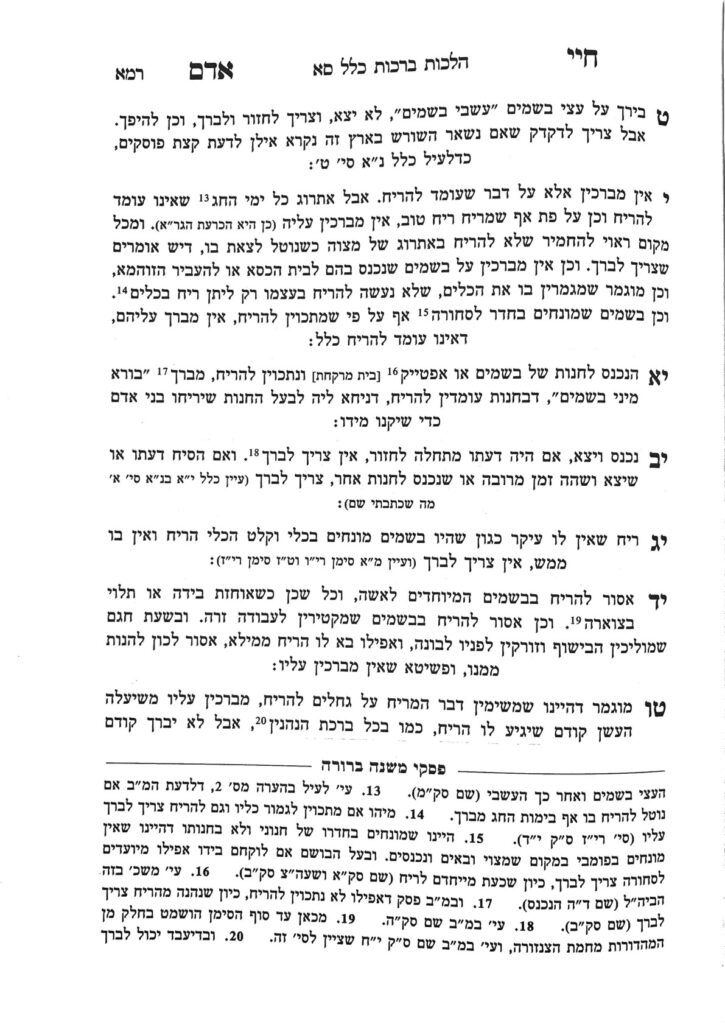We are beginning siman 13. A container which housed besamim and retains the smell of the besamim after they have been removed does not receive a bracha. This type of smell is considered a reiach she’ein bo ikar, and one is not allowed to make a bracha on it. An example of this halacha is the foam of an esrog box which retains the smell of the esrog even when the esrog is not inside. It is assur to make a bracha on the smell which emanates from the foam.
In siman 14, the Chayei Adam writes that it is assur to smell besamim which are designated for the purpose of giving a woman a nice smell, both when she is wearing them and even when she is not. Since it is assur for part of the population to smell it (i.e., men), Chazal did not enact a bracha for it.
We have learned that if the besamim are synthetic, there is no bracha anyways (see shiur 1180). Therefore, we must be discussing a perfume which originates from natural sources (including animals). Although one theoretically would make a bracha, due to the inappropriate nature of the perfume, Chazal did not enact a bracha on it.
Not all poskim agree that it is assur to smell the besamim when a woman is not wearing them. However, due to the machlokes, it is most appropriate to avoid smelling them completely.
When the perfume is still in the store, where it is not designated for a specific woman, one would arguably make a bracha, especially in combination with the poskim mentioned above who hold that even when the perfume is designated for a specific woman, it is muttar to smell them as long as she is not wearing them. Either way, one should only smell the perfume if they know it will not cause them hirhur about a specific woman.
The source of the issur of smelling perfume which belongs to a woman is not brought in the Gemara. The Rambam brings in Peirush HaMishnayos a drasha from Chazal (also quoted in the Midrash) that when the Torah writes lo sinaf, Chazal understand it to also mean lo se’heneh le’af, not to give immoral enjoyment to the nose. There is a contradiction within the Rambam as to whether this issur is an issur deoraysa or issur derabanan.
Regarding the lack of a bracha, the Rambam learns from besamim of avodah zarah (the upcoming siman) that just as regarding avodah zarah, once the item is assur it does not receive a bracha, so too regarding the besamim of a woman, once they are assur to smell they do not receive a bracha.
Summary
- A container which housed besamim and retains the smell of the besamim after they have been removed does not receive a bracha, because it is a rei’ach she’ein bo ikar.
- No bracha is made on besamim which are designated for a specific woman.
- If they are designated for a specific woman, but she is not wearing them, one should avoid smelling them.
- If they are not yet designated for a specific woman (e.g., they are still in the store), one may make a bracha on them, provided they are not synthetic, and provided that they do not cause one hirhur.



